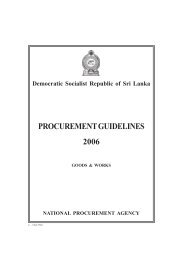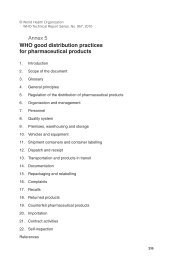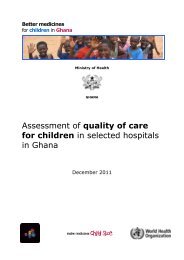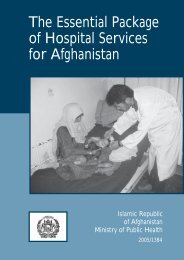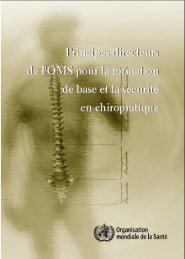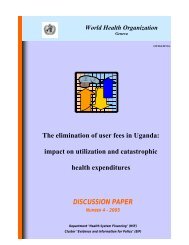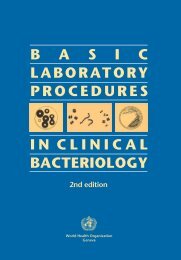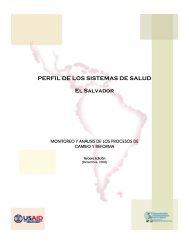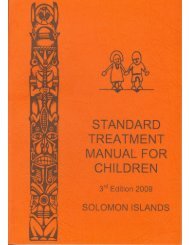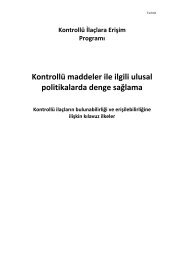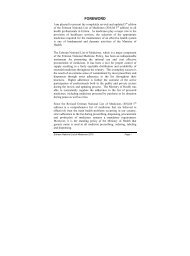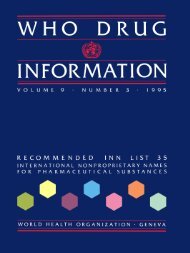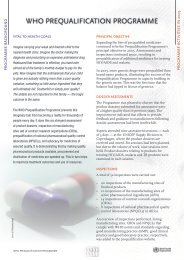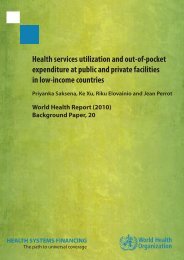WHO Drug Information Vol. 25, No. 2, 2011
WHO Drug Information Vol. 25, No. 2, 2011
WHO Drug Information Vol. 25, No. 2, 2011
You also want an ePaper? Increase the reach of your titles
YUMPU automatically turns print PDFs into web optimized ePapers that Google loves.
<strong>WHO</strong> <strong>Drug</strong> <strong>Information</strong> <strong>Vol</strong>. <strong>25</strong>, <strong>No</strong>. 2, <strong>2011</strong>Quality Assurance IssuesQ37 Is it necessary to legalize the CPP?A37 <strong>No</strong>. Legalization is not part of the<strong>WHO</strong> Scheme and it is not considered toprovide additional assurance of authenticity.Approval status in key referencecountries is currently available as publicinformation.Legalization should not be necessarysince an official governmental authority ofthe certifying country signs the CPP.Legalization delays availability of the CPPand thereby delays access to medicinesfor patients. If a recipient authority hasany doubts about the validity of a CPP itshould contact the certifying authoritydirectly.Q38 What should receiving countries doin case of any doubt about a CPP?A38 In case of any doubt, the competentauthorities of receiving countries shouldcommunicate directly with the authorizedbody that has issued the certificate orcontact <strong>WHO</strong> to clarify the matter.Q39 Are certifying authorities penalized ifthey issue CPPs, but do not meet <strong>WHO</strong>requirements for self-certification andsubsequent issue of CPPs?A39 <strong>No</strong>. There is no penal system. <strong>WHO</strong>does not have the power to certify,inspect or penalize certifying authorities.Q40 What are the main problems encounteredin the application of theScheme?A40 A number of problems have beenreported during use of the Scheme, whichinclude:• Countries not party to the Scheme issuecertificates.• Authorities that do not meet the requirementsstated in the guidelines for theScheme issue certificates.• Some issuing authorities put the <strong>WHO</strong>emblem, logo or acronym on the certificate,thereby creating the impressionthat the certificate is authenticated by<strong>WHO</strong>.References1. <strong>WHO</strong> Certification Scheme on the Quality ofPharmaceutical Products Moving in InternationalCommerce. World Health Assemblyresolution WHA22.50 (1969), World HealthAssembly resolution WHA28.65 (1975), WorldHealth Assembly resolution WHA41.18 (1988),World Health Assembly resolution WHA45.29(1992), and World Health Assembly resolutionWHA50.3 (1997) available at: http://www.who.int/governance2. World Health Organization. Expert Committeeon Specifications for PharmaceuticalPreparations. Technical Report Series,2009;953:47-48 at http://www.who.int/medicines/publications.121



